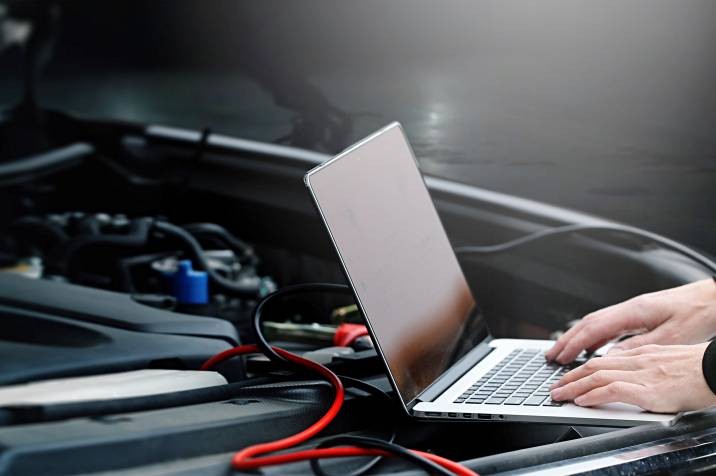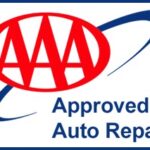Getting a car diagnostic check can feel like deciphering a cryptic message from your vehicle. That mysterious check engine light blinking on your dashboard is your car’s way of saying, “Something’s not right!” But before you start imagining worst-case scenarios and hefty repair bills, you’re probably wondering: how much does a diagnostic car check cost?
The price of a car diagnostic test can vary, typically ranging from $20 to over $400. This range depends on several factors, including where you go for the service, the type of vehicle you drive, and the complexity of the diagnostic process itself. Understanding these cost factors and what a diagnostic check entails can help you make informed decisions and potentially save money in the long run.
What is a Car Diagnostic Test?
Modern cars are incredibly sophisticated, equipped with onboard computers and sensors that constantly monitor various systems. When these sensors detect a problem, they trigger warning lights, most commonly the check engine light. A car diagnostic test is essentially a computerized health check for your vehicle. Mechanics use specialized tools and software to communicate with your car’s computer, reading trouble codes and analyzing data from different systems.
This process helps pinpoint potential issues within your:
- Engine: Identifying problems with combustion, fuel delivery, or emissions.
- Transmission: Detecting issues with gear shifting, fluid pressure, or electronic controls.
- Braking System: Analyzing ABS, brake pad wear sensors, and hydraulic systems.
- Electrical System: Checking battery health, alternator function, and sensor integrity.
- Exhaust System: Monitoring catalytic converter efficiency and emissions levels.
- Fuel System: Assessing fuel pressure, injector performance, and fuel pump function.
- Ignition System: Evaluating spark plug performance, ignition coil function, and timing.
- Air Conditioning (A/C): Diagnosing refrigerant leaks, compressor issues, and system pressure.
- Airbags and Safety Systems: Verifying sensor functionality and system readiness.
It’s crucial to understand that a diagnostic test is not a repair itself. It’s an investigative step that helps mechanics identify the source of the problem, guiding them towards the necessary repairs.
Decoding Car Diagnostic Test Costs: Price Ranges Explained
The cost of a car diagnostic test isn’t fixed and can be broken down into general price ranges:
-
Low-End Diagnostics ($20 – $65): You might find these lower prices at chain auto parts stores or as part of promotional offers at some repair shops. These basic tests often involve a quick scan to read trouble codes related to the check engine light. While helpful for initial insights, they might not provide in-depth analysis or cover all vehicle systems.
-
Mid-Range Diagnostics ($65 – $160): This is the typical price range you can expect at most independent repair shops and dealerships. Mid-range diagnostics usually involve a more comprehensive scan, potentially including multiple system checks and a more detailed analysis of the data. This often includes the mechanic’s labor to interpret the diagnostic report and provide an initial assessment.
-
High-End Diagnostics ($160 – $400+): Higher costs are often associated with luxury vehicles, high-performance cars, or complex issues that require advanced diagnostic equipment and specialized expertise. Dealerships specializing in luxury brands or mechanics with advanced certifications might charge in this range. Full vehicle diagnostics, including in-depth analysis of multiple systems and intricate troubleshooting, can also fall into this higher price bracket.
It’s important to remember that these are just estimates. To get a precise quote, always contact your chosen service provider and inquire about their diagnostic fees.
Factors Influencing Your Car Diagnostic Check Cost
Several key factors can influence the final price you pay for a car diagnostic test:
1. Location, Location, Location
Just like real estate, location plays a significant role in car repair pricing. Areas with higher costs of living, such as major metropolitan cities, generally have higher labor rates for mechanics, which translates to potentially more expensive diagnostic tests. Conversely, you might find slightly lower prices in less densely populated areas due to less overhead and competition.
2. Mechanic’s Expertise and Shop Reputation
Experienced and highly skilled mechanics, especially those with specialized certifications or expertise in specific vehicle brands, may command higher labor rates. Similarly, well-established repair shops with a strong reputation for quality service might also have slightly higher prices. While it might seem tempting to opt for the cheapest option, investing in a reputable mechanic can often save you money and headaches in the long run by ensuring accurate diagnoses and effective repairs.
3. Vehicle Make and Model: Luxury vs. Mainstream
The complexity of your vehicle’s systems and the brand itself can affect diagnostic costs. Luxury and high-performance vehicles often have more intricate computer systems and require specialized diagnostic tools and software. Mechanics working on these vehicles might need advanced training and access to manufacturer-specific resources, justifying potentially higher diagnostic fees. Common, mass-market vehicles typically have more accessible diagnostic procedures and might incur lower costs.
4. Type of Diagnostic Service
The depth and scope of the diagnostic service also influence the price. A basic check engine light scan will naturally be less expensive than a comprehensive full-vehicle diagnostic assessment that examines multiple systems in detail. If you’re experiencing vague symptoms or suspect a complex issue, a more thorough diagnostic service might be necessary, justifying a higher cost.
5. Potential for Labor Charges
Some mechanics charge a flat fee for diagnostic services, while others might charge by the hour for labor. If the diagnostic process is straightforward and quickly identifies the problem, a flat fee can be advantageous. However, if the issue is complex and requires extensive troubleshooting to pinpoint, hourly labor charges might apply. Always clarify the shop’s pricing structure beforehand to avoid surprises.
When is a Car Diagnostic Test Worth the Cost?
While no one enjoys unexpected car expenses, a diagnostic test is often a worthwhile investment in several situations:
-
Check Engine Light Illumination: This is the most obvious trigger. A blinking or persistent check engine light signals a problem detected by your car’s computer, and a diagnostic test is the first step to understanding what’s wrong.
-
Used Car Purchase Inspection: Before finalizing the purchase of a used vehicle, a pre-purchase inspection that includes a diagnostic test is highly recommended. It can reveal hidden issues that might not be apparent during a visual inspection or test drive, potentially saving you from costly repairs down the road.
-
Preventive Maintenance Schedule: Some manufacturers recommend periodic diagnostic checks as part of routine maintenance schedules. These preventive tests can identify minor issues before they escalate into major problems, ultimately saving you money and extending the lifespan of your vehicle.
-
Unusual Vehicle Behavior: If you notice any changes in your car’s performance, such as rough idling, unusual noises, decreased fuel efficiency, or strange shifting patterns, a diagnostic test can help identify the underlying cause, even if the check engine light isn’t on.
Finding Affordable and Reliable Car Diagnostic Services
Getting a diagnostic car check doesn’t have to break the bank. Here are some tips for finding affordable and reliable services:
-
Compare Quotes: Don’t settle for the first quote you receive. Call several local repair shops and dealerships to compare their diagnostic service fees.
-
Ask About Flat Fees vs. Hourly Rates: Clarify whether the shop charges a flat fee for diagnostics or hourly labor rates. Understand what’s included in the diagnostic service to make an informed decision.
-
Read Online Reviews: Check online reviews and ratings for local mechanics and repair shops. Look for shops with positive feedback regarding their diagnostic accuracy and customer service.
-
Consider Independent Repair Shops: Independent repair shops often have lower overhead costs compared to dealerships, potentially offering more competitive pricing for diagnostic services.
-
Inquire About Diagnostic Fees with Repairs: Some repair shops may waive or reduce the diagnostic fee if you proceed with the recommended repairs at their shop. It’s worth asking about this policy when comparing quotes.
The Value of a Car Diagnostic Check
While the cost of a car diagnostic check is an important consideration, remember that it’s an investment in understanding your vehicle’s health. By accurately identifying potential problems early on, a diagnostic test can help prevent more extensive and expensive repairs down the line. It’s a crucial step in maintaining your car’s reliability, safety, and longevity. So, the next time that check engine light flickers on, knowing what to expect in terms of cost and process can make the experience less daunting and empower you to take proactive steps in caring for your vehicle.


